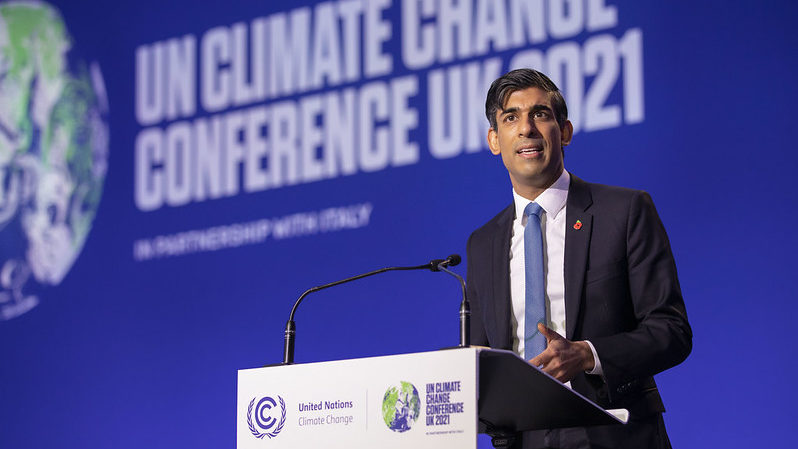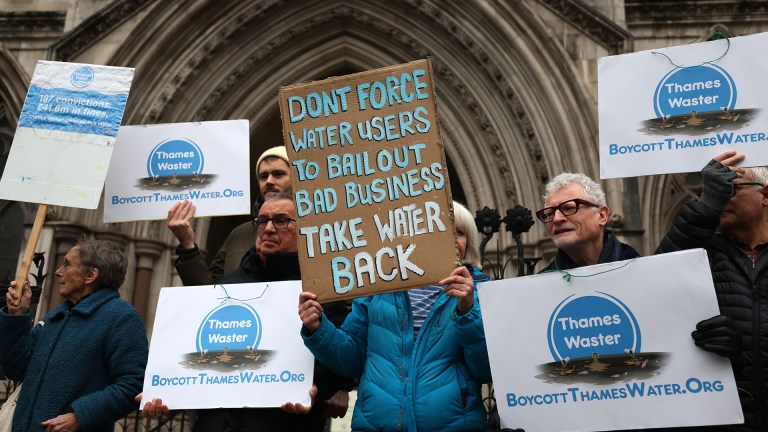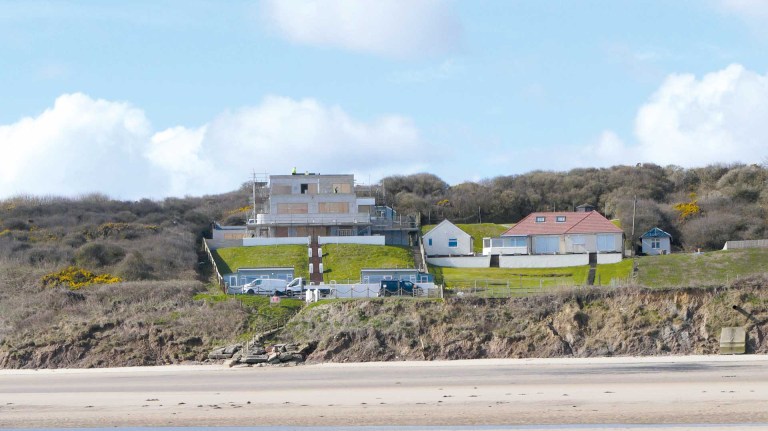This includes voting against an obligation for ministers to consider the 2050 net zero target when designing policies and voting against calling on the government to eliminate the majority of emissions from transport by 2030.
In a recent interview with the Telegraph, Badenoch expressed doubt about the UK’s net zero target, saying she was “not someone who doesn’t believe in climate change”, but adding that it was “wrong of us to set a target without having a clear plan of the cost and knowing what it would entail”.
“Setting an arbitrary target like that is the wrong way to go… There is a better way of going about these things,” she said. She has yet to elaborate on her plans for a “better way”.
Suella Braverman
Suella Braverman, the attorney general, is another candidate who has expressed doubts about the UK’s flagship net zero policy.
Despite calling climate change “one of the most serious threats that this country and the world faces,” Braverman launched her leadership campaign over the weekend by saying: “In order to deal with the energy crisis we need to suspend the all-consuming desire to achieve net zero by 2050.”
“If we keep it up, especially before businesses and families can adjust, our economy will end up with net zero growth.”
Advertising helps fund Big Issue’s mission to end poverty
Braverman has also secured backing from Steve Baker, the MP who founded the Net Zero Scrutiny Group, and has previously used her role as attorney general to crack down on climate protesters like Insulate Britain.
The MP has also consistently voted against measures to combat climate change.
Jeremy Hunt
Publicly, former health and foreign secretary Jeremy Hunt has expressed support for green policies, saying that securing COP26 in Glasgow was one of his proudest achievements.
He has also supported attempts to stop fossil fuel development in his constituency, but has voted against measures to prevent climate change in the past. He has said he will keep the 2050 pledge should he become prime minister.
Sajid Javid
Sajid Javid has generally expressed support for climate policies in public, calling last year for a new international financial organisation to price up biodiversity and carbon to put a “cost to nature of the resources we use”.
In 2019 he wrote in HuffPost that the net zero target was “ambitious” but “the right one”. When asked at the weekend whether as PM he would keep the pledge, he said he would – but said the cost should be minimised.
Advertising helps fund Big Issue’s mission to end poverty
Penny Mordaunt
Penny Mordaunt has a mixed record on climate change. She’s supported tidal power in the past and has openly named climate change as a major challenge for the global community.
The Byline Times reported last year, however, that Mordaunt received £10,000 from a firm owned by Terence Mordaunt – a renowned critic of established climate change science.
There are conflicting reports about whether the two are related to one another.
Mordaunt has also generally voted against policies to tackle climate change, in line with other Tory MPs.
But, writing in The Telegraph, she has talked of the transition to net zero creating “up to three million green jobs” by 2030, suggesting she backs the 2050 taret.
Grant Shapps
As transport secretary, Shapps has acknowledged transportation must decarbonise in line with the net zero target.
Advertising helps fund Big Issue’s mission to end poverty
In 2021 he promised a review of the highways policy to make road-building greener, but has faced criticism for not suspending projects until the review is complete.
Shapps has also harshly condemned climate protesters like Insulate Britain, calling them “anarchists”.
The day before Sajid Javid and Rishi Sunak resignations sparked the downfall of the government, Shapps was in a video talking about improving transport to achieve net zero targets. But he’s not focused on it in his leadership pitch.
Rishi Sunak
In his time as chancellor under Boris Johnson, Rishi Sunak was regularly cited as pushing back against green policy on the grounds of its expense to Treasury coffers and the public.
He did, however, promote moves to force banks and other companies to account for their greenhouse gas emissions while he was in the role.
He’s set to launch his leadership bid on Tuesday, so his net zero and climate crisis stance is not clear yet.
Advertising helps fund Big Issue’s mission to end poverty
Liz Truss
While Liz Truss hasn’t spoken out against net zero directly, she has spoken little on climate change in her role as foreign secretary, hardly appearing at COP26 in November.
In her former role as environment secretary from 2014 to 2016, Truss criticised solar power on agricultural land as harmful to food security.
Tom Tugendhat
Former British army officer Tom Tugendhat has made supportive noises about climate change advocating for rewilding, writing in January 2020 that: “Climate change is one of the greatest challenges we face and I fully appreciate the urgency in our need to combat it.”
Yet Tugendhat did not mention climate change or environment policies in the leadership bid he set out in the Daily Telegraph over the past few days. He’s set to launch his leadership campaign on Tuesday.
Nadhim Zahawi
As education secretary, Nadhim Zahawi recently introduced a natural history GCSE into the curriculum as part of the fight against climate change, along with other measures to improve teaching and learning about environmental issues.
However, Zahawi has also historically voted against legislation to tackle climate change, and also held a former post as an oil industry executive between 2015 and 2017.
Advertising helps fund Big Issue’s mission to end poverty
He’s vowed to stick to the 2050 net zero commitment in his leadership pitch, but says it shouldn’t hinder economic growth and shouldn’t impact on households.
Rehman Chishti
A relatively unknown candidate in the Tory leadership race, Rehman Chishti doesn’t have much of a record to speak of when it comes to climate issues.
Generally speaking, he’s voted against measures to combat climate change in line with other Conservative MPs.









